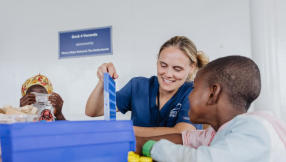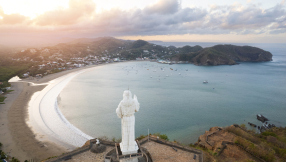The long wait for justice in Bangladesh
At the age of 55, Anna is wondering if she will ever see justice for her son’s death during her lifetime.
“How long shall I wait to get the verdict on the killing of my son? I want this government to investigate properly to find the real culprits. Or they should tell us that nothing will happen because we are poor and minority Christians,” she told Compass Direct News.
Her son, Suman Halder, was 23-years-old when he was killed in a bomb attack in Baniarchar Catholic Church in Gopalganj district, about 60 miles south of the capital city of Dhaka, in 2001. Among some 70 people who were attending Sunday prayers, he was one of the ten killed. Another 20 were injured from the bomb blast.
The surviving mother of Suman Halder can only hope that her dead son will receive justice under the new, more religiously tolerant government that was elected in December.
“I think this particular story shows one of the challenges in South Asia where Christians are a very small minority and tend to be low economic level people,” Paul Estabrooks, minister at large for Open Doors USA, told The Christian Post. “I think this is a classic case of overlooking justice for those who are considered to be insignificant.”
On the 2009 Open Doors World Watch List – a report that ranks the world’s countries based on their persecution of Christians – Bangladesh has moved up five spots to No 43, from last year’s No 48 position.
According to Open Doors, the main reasons behind the increased persecution score is attributed to the growing pressure on converts in Bangladesh as well as the death of one believer in February 2008 and the kidnapping and rape of a pastor’s 13-year-old daughter in May.
“Throughout Southeast Asia, believers are pressured by dominant religions and ideologies,” the ministry reports.
And according to believers living in Hindu, Buddhist, Muslim, and Communist controlled areas, local authorities are often far from helpful.
The priests from Baniarchar Catholic Church complain that there was never a proper investigation into the attack despite their call for justice. No one has been arrested for the attack in the eight years since, and police had even initially harassed several Christians whom they falsely suspected of being the perpetrators.
|PIC1|“It was a trick to hide the real incident by suspecting Christians about the bombing in the church,” Father Jacob Gobbi, chief priest of Baniarchar Catholic Church, told Compass Direct. “We want to know why there was an attack on our church.”
Father Domenico Piepanza, the priest who led the service at the time of the attack, said there has been police “negligence” concerning the investigation because the victims were minority Christians.
“It is sure that no Christian did that bombing,” Piepanza added.
But Gobbi does not believe local Muslims are responsible for the attack either, since there is no tension between local Christian and Muslims. Rather, he suspects outside terrorists are behind the 2001 bombing of the church.
“In our case, there was no interest of the government, as those who were killed were very ordinary people of the society,” Gobbi said. “Proper investigations of many deadly bomb attacks by Islamic extremists have taken place – why not in our case?”
Open Doors’ Estabrooks notes that the persecution of Christians in Bangladesh is similar to that of believers in nearby Pakistan, where followers of Christ also make up a very small minority in the overwhelmingly Muslim country.
“It’s true in that whole area that the majority of Christians, who are a small minority in the country, are very low-income, low economic level people and therefore do not seem to warrant receiving justice when things happen negatively in their lives,” said the Open Doors spokesman.
Open Doors has supported the Christian community in Bangladesh by holding seminars called “Standing Strong Through the Storm”, which offers biblical guidance to persecuted Christians on how to endure hardships. Open Doors holds these seminars around the world wherever Christians are persecuted, including in Iraq, Turkmenistan, India, and Indonesia.
In the United States, meanwhile, Todd Nettleton, director of media development for The Voice of the Martyrs USA, another Christian persecution watchdog, urges American Christians “to pray for justice for our brothers and sisters in Bangladesh who have been affected by persecution”.
“We call on the government of Bangladesh to protect religious minority members,” he said in a statement to The Christian Post. “Christians in Bangladesh deserve the freedom to worship according to their consciences, without the threat of harassment or death.”
According to the CIA World Factbook, Muslims comprise 83 per cent of Bangladesh’s population while Hindus comprise 16 per cent. Other faiths make up the remaining one per cent.













